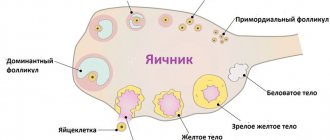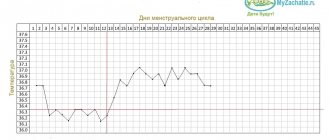The first thing a pregnant woman worries about when she learns that she will soon have a baby is that he develops well and that the pregnancy itself proceeds without complications. But, unfortunately, this does not always happen. Some women leave their gynecologist in tears because they hear: “You are at risk of spontaneous abortion.” However, a competent doctor will immediately reassure the woman and prescribe adequate treatment. In the early stages, the drug duphaston is popular among doctors. This medicine has proven itself very well, since it has helped a huge number of women not to lose their baby, but to fully experience the joys of motherhood.
What effect does Duphaston have?
Duphaston is an artificially created substitute for progesterone, a female sex hormone that promotes normal pregnancy. It belongs to the group of progestins (gestagens). The effect of the drug on the body completely coincides with natural compounds produced by the corpus luteum of the ovary and the adrenal cortex.
Duphaston is produced in the form of tablets, which allows treatment both in the hospital and at home. Before its appearance, women were prescribed intramuscular injections of progesterone, which were painful and required a stay in a medical facility.
The main effect of Duphaston is the same as that of progesterone: it reduces the tone of the muscular walls of the uterus, thereby eliminating the threat of miscarriage. The drug has a small list of side effects and does not have a negative effect on the condition of the fetus.
Unlike most other progestins, male sex hormones are not used in the production of Duphaston, which eliminates the possibility of changes in the body of a woman and female child.
All these advantages make it possible to safely prescribe the drug to prevent spontaneous abortion.
What is duphaston and how does it work?
The hormonal background of a pregnant woman, especially in the first twelve weeks, is greatly restructured compared to what it was before pregnancy. The ovaries of the expectant mother intensively produce the hormone progesterone. Progesterone is also called the pregnancy hormone because it plays such an important role in the process of bearing a baby. This hormone “forces” the uterus to relax, thereby preventing miscarriage.
Duphaston is a synthetic analogue of progesterone with a similar effect on the body of a pregnant woman. Duphaston is produced in tablet form. By the way, this is a big plus, since until recently women were injected with progesterone drugs intramuscularly. Many of them were literally afraid of injections, since an oily solution was injected, causing severe pain.
But duphaston is prescribed not only when there is a risk of miscarriage. It can also be used to treat endometriosis, infertility and to stop uterine bleeding. As a rule, duphaston is prescribed in the first trimester of pregnancy. But there are cases when its use in the second trimester is also appropriate and effective.
Indications and contraindications
Duphaston is prescribed for insufficient production of progesterone by the body. Sometimes before you start taking it, it is necessary to undergo laboratory tests, but more often the lack of this hormone can be judged by clinical manifestations.
The drug is prescribed at different periods:
- Before and after pregnancy. Duphaston is able to relieve bleeding during menstruation, which is accompanied by severe pain, severe premenstrual syndrome. It is also indicated for amenorrhea and dysmenorrhea.
- At the stage of pregnancy planning. Taking Duphaston promotes the successful attachment of a fertilized egg to the wall of the uterus and the further development of the embryo. This occurs due to the establishment of optimal hormone levels. The drug can also be used for infertility caused by hormonal causes, when insufficiency of the luteal phase in the menstrual cycle is detected.
- During pregnancy. The drug is indicated for cases of threatened miscarriage, including early bleeding caused by hormonal imbalances, recurrent miscarriage, endometriosis, and endometritis.
Duphaston is contraindicated in only one case - if signs of hypersensitivity to the components of the drug are detected. It is prescribed with caution for hepatosis, a non-inflammatory liver disease.
During treatment with Duphaston, you should not drink alcoholic beverages, as its effectiveness decreases, and the liver receives a load that it is not able to cope with.
Composition and application
The treatment includes taking forty milligrams of this drug at a time, then ten milligrams every eight hours until the signs of miscarriage disappear. In case of a habitual miscarriage, it is enough to take ten milligrams of Duphaston twice a day until the eighteenth to twentieth week of pregnancy.
In other words, Duphaston is a hormone therapy that is used to correct a number of pathological conditions that are associated with progesterone deficiency.
Duphaston has some contraindications, including renal failure, epilepsy, Rotor or Dabin-Johnson syndromes, migraine, cardiovascular diseases and hypersensitivity of the body to the components of the drug.
Duphaston is prescribed by many gynecologists when there is a threat of miscarriage. This drug is widely known and successfully used in Russia. But the problem is that this drug is often prescribed just in case, that is, without reason. But the drug is not entirely harmless... Let's look at some cases when duphaston can be prescribed during pregnancy, until what stage of gestation it makes sense to take this drug, and what side effects may occur from taking it.
The simplest thing you can do is open the instructions for the drug and read it. To do this, you don’t even have to buy the drug; you can find this information on the Internet. So, indications for its use are endometriosis, infertility (caused by insufficiency of the luteal phase of the cycle), uterine bleeding, and the threat of early miscarriage. Dosage of duphaston in case of threat of miscarriage - take 40 mg of the drug immediately, then 10 mg 3 times a day until the symptoms disappear. It makes sense to take this drug in the first half of pregnancy, up to about 20 weeks.
All that remains is to figure out what the threat of miscarriage is - in what cases this diagnosis is made. This diagnosis is perhaps the most common. It is given to literally all women who have just felt aching pain in the lower abdomen, or who have been diagnosed with local uterine tone on an ultrasound. In fact, it is impossible to put the risk of miscarriage solely on the basis of an ultrasound result. Even low location or complete placenta previa does not provide grounds for making such a diagnosis. Only regular pain and bloody discharge from the genital tract. In this case, the doctor prescribes and explains how to take duphaston if there is a threat of miscarriage, in order to prevent it.
However, this drug has a number of side effects. And before you start drinking it for prevention, without good reasons, you need to remember them. These are headache, jaundice, liver dysfunction, pain in the mammary glands, skin rash, swelling. Allergic reactions are possible.
Symptoms of threatened miscarriage
Duphaston is prescribed during pregnancy if there is a threat of miscarriage.
There are two main symptoms that indicate this condition:
- Pulling pain in the lower abdomen. Most often, they intensify with movement and subside while resting in a horizontal position. They can radiate to the lower back, groin area. Discomfort on the sides of the abdomen in the first weeks of pregnancy occurs due to changes in the ligaments of the uterus and does not pose a danger.
- Vaginal bleeding. Can be copious, moderate or spotting. It is observed constantly or periodically, with breaks from several hours to a day or more. If there is a threat of miscarriage, it is associated with detachment of the fertilized egg. This symptom can easily be confused with implantation bleeding, so you should immediately consult a doctor to determine the cause. If the discharge is abundant and bright scarlet, then you need to call an ambulance.
Another sign of a threatened miscarriage, characteristic of early pregnancy, is uterine hypertonicity. It cannot be felt, but can be detected during an ultrasound. Increased muscle tone in the first three months of pregnancy often occurs on the anterior or posterior wall of the uterus. To eliminate it, antispasmodic drugs (No-Shpa, Papaverine) are used and a repeat ultrasound is prescribed after 10 days.
In some cases, total uterine hypertonicity develops. In this case, all the walls of the uterus are reduced and become stone-like. This sign directly indicates the threat of spontaneous abortion. Hospitalization and an integrated approach to treatment are required, including taking antispasmodics, vitamins and hormonal drugs.
The earlier the symptoms of a threatened miscarriage are detected, the greater the chances of saving it. Therefore, in the early stages, you need to carefully monitor changes in your well-being and, if pain and/or bleeding occurs, immediately contact your doctor.
Instructions for use of duphaston
This condition can be effectively overcome by direct action on progesterone receptors, which is accomplished by replenishing the deficiency of endogenous progesterone. This is done with the use of drugs - progestogens. Duphaston is a modern and effective gestagenic agent. Duphaston (dydrogesterone) is easily absorbed when consumed. Dydrogesterone causes a full-fledged secretion phase in the endometrium, which ensures its high ability.
Duphaston is a potent gestagen, similar in structure to progesterone produced by a woman’s body; it has a high affinity for progesterone receptors.
It differs from other representatives of progestogens in that it is not a testosterone derivative, and is completely different from most synthetic progestogens. This allows you to avoid side effects that are typical for most of these drugs.
How to take Duphaston if there is a threat of miscarriage?
Duphaston during pregnancy is prescribed by a doctor, like all other drugs indicated to eliminate the threat of miscarriage. This condition poses a danger to the woman and her unborn child, so self-medication is unacceptable. Using the wrong medications or dosage can only make the situation worse.
The dosage of Duphaston in case of threat of miscarriage is always determined individually. The woman’s health status and the characteristics of hormonal disorders are taken into account.
When there is a threat of spontaneous abortion, the drug is usually prescribed according to the following regimen: the first dose is 40 mg (4 pcs) once, and then 10 mg (1 pc) three times a day. It is important to maintain the same intervals between tablets; this will help maintain the same level of hormones in the blood, eliminating an increase in uterine tone. If there is a threat of miscarriage, Duphaston should be taken every 8 hours (with a daily dosage - 1 tablet 3 times).
The duration of treatment is calculated taking into account the dynamics of the condition. When the symptoms of the threat disappear, and this is also detected by ultrasound, the doctor may decide to stop taking Duphaston.
The withdrawal of the drug should be done gradually; there are several schemes for this. One of them: take 1 tablet 2 times a day for 10 days, then 1 tablet 1 time a day, and finally 1 tablet every other day.
Duphaston is prescribed during pregnancy to eliminate the threat of miscarriage. The drug is an analogue of progesterone and helps eliminate uterine hypertonicity. The dosage, regimen of administration and withdrawal are determined by the doctor individually. If all recommendations are followed, the drug will not harm the unborn child.
Author: Olga Khanova, doctor, especially for Mama66.ru
Analogues of the drug Duphaston
- Duphaston. This drug is an analogue of Duphaston, which was released later. The drugs differ only in price. There may also be minor differences in composition in the form of additional components.
- Dydrogesterone. It is the most reliable analogue. It costs slightly less than Duphaston.
Drugs with similar effects:
- . This analogue is produced in Thailand. The active component is natural micronized progesterone. Its source is animals or volunteers. The consequence of this is a low likelihood of allergic reactions and high effectiveness of the product. Hormones do not contain an antigenic structure. They work equally well regardless of the type of animal. Contraindications: bleeding of unknown origin from the birth canal. The drug may cause drowsiness, so it is not recommended for people leading an active lifestyle or driving vehicles.
- Progesterone
. This Russian analogue of Duphaston contains gestagen, the hormone of the corpus luteum. The active components of these two drugs differ, but they are prescribed in the same cases. Another difference is that progesterone is available only in dosage form, which can be introduced into the body by injection. Because of this, it is difficult to use independently, so it is most often used for inpatient treatment. However, due to this, it allows you to achieve the necessary therapeutic effect much faster than tablets. In this regard, in case of severe spontaneous abortion, progesterone is prescribed.
Mechanism of action of the drug
Progesterone plays an important role in maintaining pregnancy throughout its entire duration.
However, it is in the first weeks that a lack of this hormone can lead to such a serious consequence as spontaneous abortion. In some cases, due to a lack of this biologically active substance, a woman does not even have time to notice that she is pregnant, since a miscarriage occurs in a very early stage. The active ingredient of Duphaston is dydrogesterone. The effects of dydrogesterone on the body are the same as those of progesterone. Duphaston is widely used in gynecological practice and is used for many pathological conditions. This drug is taken in case of miscarriage to prevent miscarriage. One of the main functions of progesterone is to prepare the uterine mucosa for intussusception of the fertilized egg. To do this, it must be well vascularized and loosened. If these conditions are not met, then the embryo fails to attach to the wall of the uterus or detachment of the fertilized egg occurs, and at a later date, the placenta. Duphaston in the early stages helps the embryo strengthen in the uterine cavity and ensures the supply of nutrients to the fetus.
Duphaston is also prescribed for:
- menstrual irregularities (irregular menstruation, dysmenorrhea);
- endometriosis;
- infertility;
- habitual miscarriage.
Unlike natural progesterone (the drug Utrozhestan), when taking Duphaston, patients do not experience headaches, sudden mood swings, or sleep disturbances. Side effects of the drug include individual hypersensitivity to dydrogesterone and the occurrence of “breakthrough” bleeding (occurs due to an imbalance of estrogen and progesterone in women taking oral contraceptives).
Price
One package contains 20 tablets. The average price in pharmacies is 550 rubles.
A woman in the first trimester of pregnancy should listen carefully to her body. As soon as any problems arise, you need to contact a gynecologist as soon as possible. After all, very often, precisely in the early stages, miscarriage occurs. The threat of miscarriage is a very serious problem, so drastic measures must be taken immediately. As a rule, women are prescribed Duphaston or its analogues if there is a threat. The drug is safe and does not harm the mother and child, but there are certain contraindications for use. Before considering the main action of Duphaston and methods of use, you need to know what symptoms occur in the early stages.










